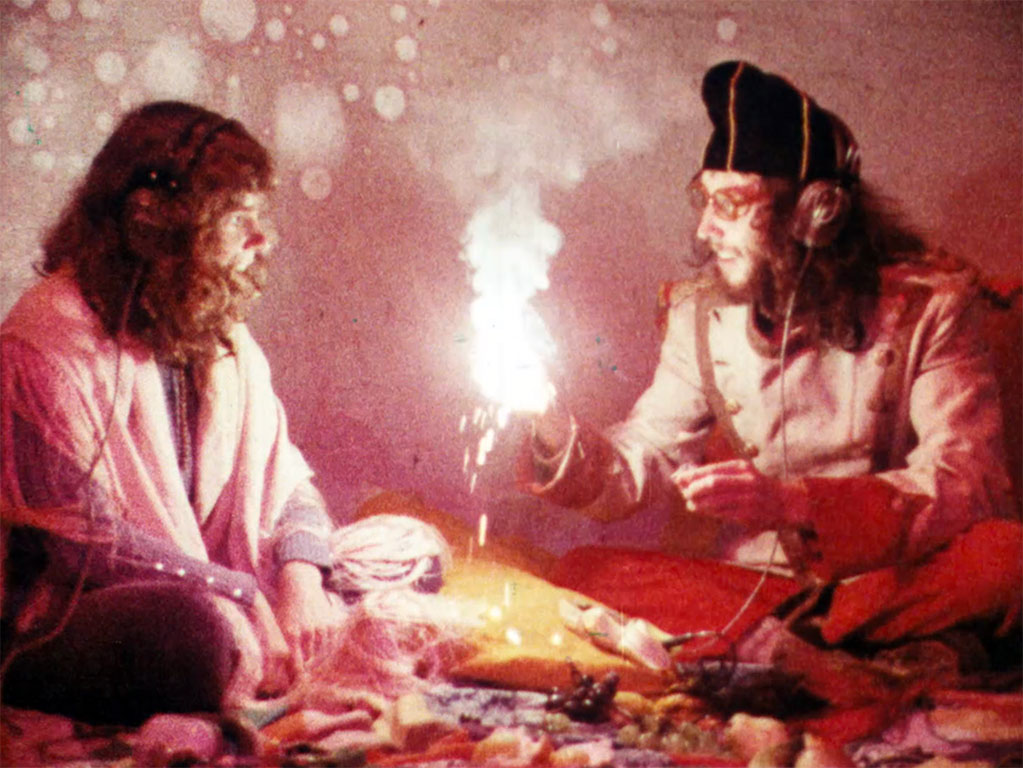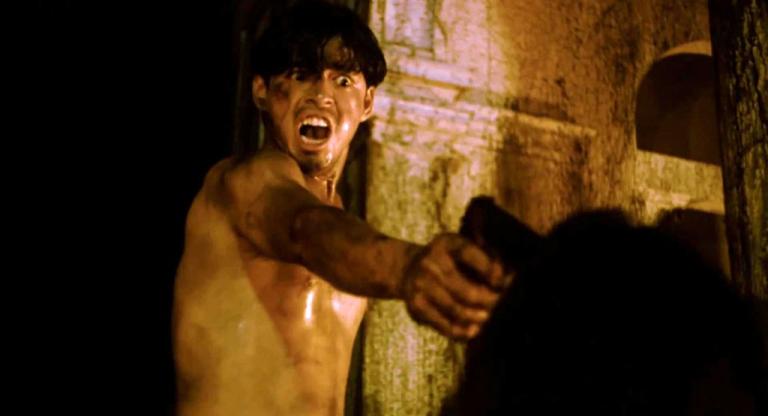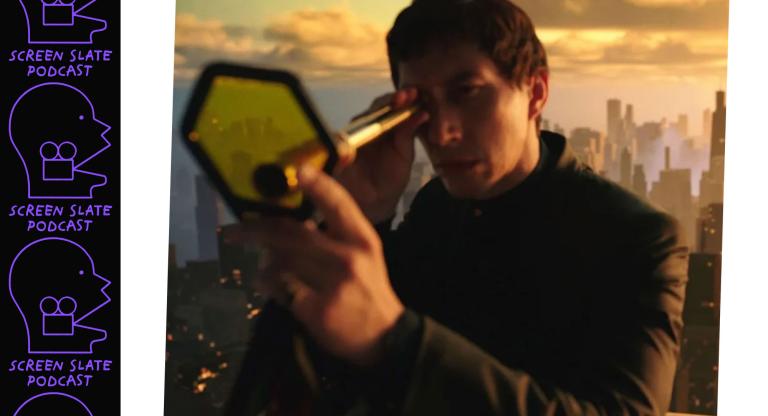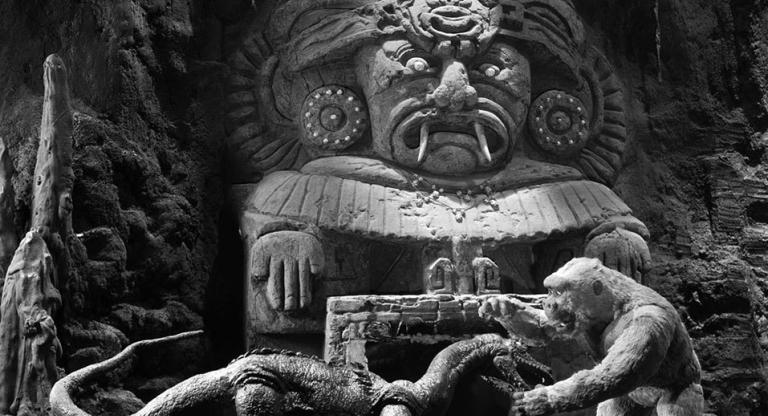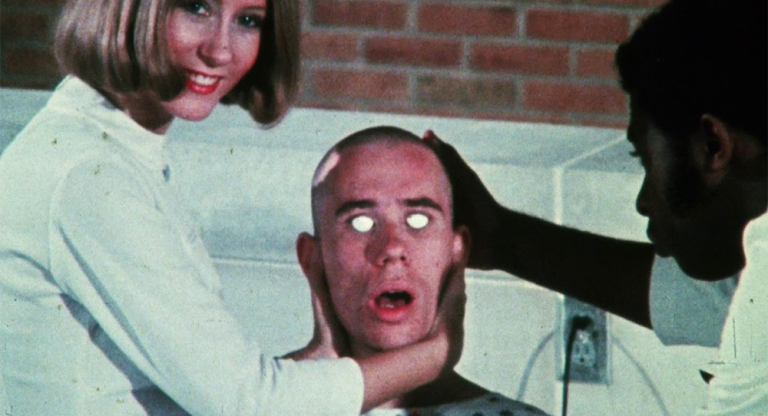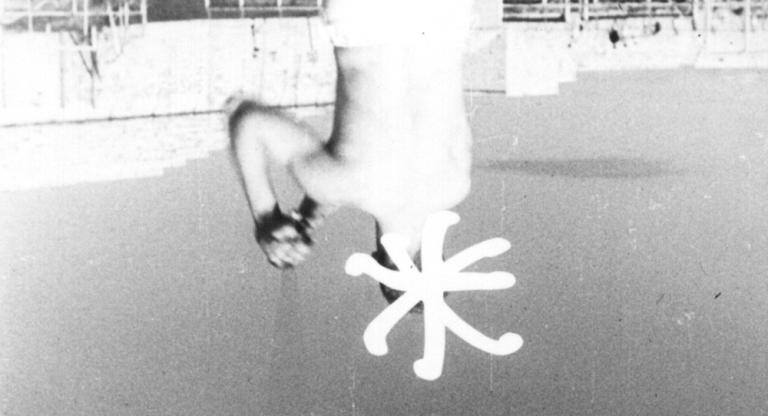Bert Deling’s Dalmas (1972) begins as a pulp thriller and ends with a psychedelic riff on Symbiopsychotaxiplasm (1968). True to its characters’ drug-of-choice (LSD), the film manages this lurch through slight associational shifts that steadily alter the film’s look-and-feel. Though utterly distinct from one another, Dalmas’s beginning and end feel like natural counterpoints for a film full of transformational gestures, reflecting the artistry and care involved in making a film about changing perceptions. The film begins with Pete Dalmas (Peter Whittle), a down-and-out ex-cop looking to avenge his partner, who appears to have been killed by a mysterious pusher known as Mr. Big. After interrogating a fellow crestfallen ex-cop, who has since become a junkie, Dalmas ends up in the company of the Plastic Man, a drug dealer who runs with a cult of LSD enthusiasts. And it’s at this point, naturally, that the film goes off the rails.
For the second half of the film, Dalmas and the hippie troupe he befriends retreat to the beach. The members of this troupe were played by performers involved with The Tribe, an Australian experimental theater group that all lived together and dedicated themselves entirely to staging politically-motivated performances at La Mama Theatre, the Pram Factory, and often, the streets. Heavily indebted to the films Jean Luc-Godard directed right before he started working under the banner of the radical Dziga Vertov Group, Dalmas holds dear many of the French filmmaker’s ideas about collective art-making. But, because of the film’s lysergic touch, which fuels its many narrative digressions, Dalmas avoids didacticism and instead ends up delivering its many messages about communal life, protest, and psychedelics through a sort of cinematic osmosis. To quote one of the troupe’s members in the film: “The director of the film is the great god Chance.”
There is a cerebral and enchanting quality to Dalmas, but beyond its intellectual faculty there’s also a cohesive aesthetic experiment on display. Dalmas is unabashedly playful, involving sequences where audio is played in reverse to represent group retrospection, overlapping dialogue is used to gesture at the communal fabric of the film, and split diopters are deployed in a scene where a group of beachside hippies toward the bottom of the frame are towered over by giant versions of their friends above them. The visual razzle-dazzle, combined with the film’s more bewitching visions of peak-hippiedom—sun-kissed bearded men om-ing by the sea, a party at a warehouse full of trippy neon art, and not one but many monologues about acid—make Dalmas an ultimate experience of sorts, an unraveling of flower-power clichés so brazen and sincere they come off as sublime.
Dalmas screens tomorrow night, May 19, at the Arverne Cinema as part of the Rockaway Film Festival’s spring/summer programming. Screen Slate is proud to co-host this rare screening and will provide its members free access.
